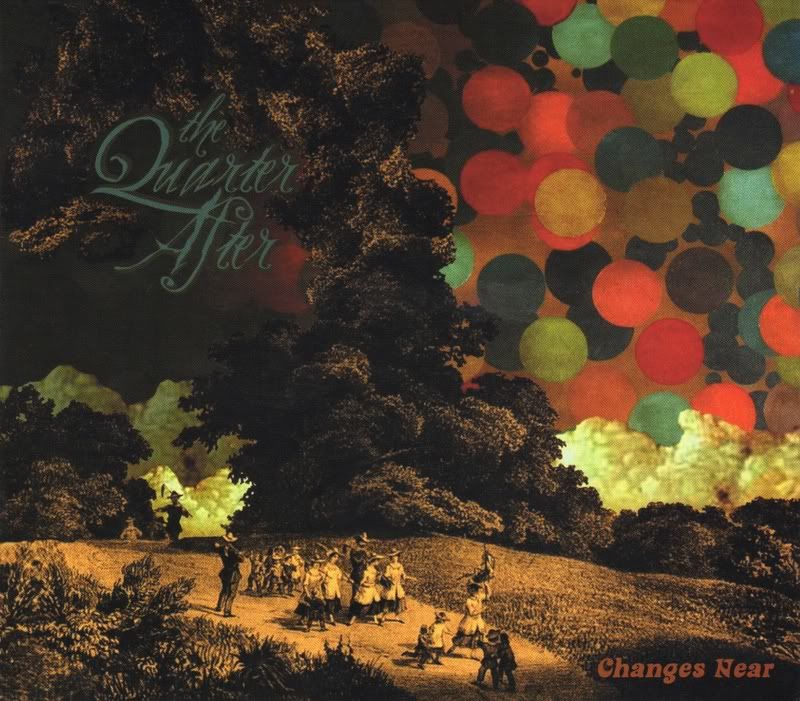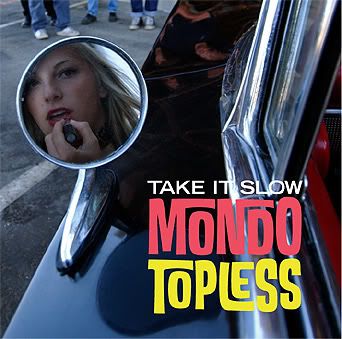John Doe A Year In The WildernessYep Roc
A Year In The WildernessYep RocThere really isn't anything that
John Doe can't do.
X still packs in a crowd and rocks the house down after 35 years, he's an often working film and TV actor with too many credits to mention, seven solo albums, and endless touring for both
X and his own band, not to mention
The Knitters!. There are a lot of people out there who are prolific, but very few (if any) that can stand up to the quality of music that
John Doe continuously releases and performs.
A Year In The Wilderness was released June of 2007, but there's been brief
X,
The Knitters, solo tours and the acting thing in between, so for a guy who's working all the time on different things,
A Year In The Wilderness deserves a new introduction.
It's hard to place
John Doe. His music in its various incarnations stated above range from punk to country tinged punk, rockabilly, Americana, and even powerpop. The labels mean nothing especially because
John Doe effortlessly intertwines those styles into one. Let's just say it's American music. He can be loud and raucaus, bluesy, introspective, soft, tell a story, sing a love song, add some
Velvets, some twang, some other things, and the result is uniquely
John Doe. The title track is a 21 second piano in an empty room piece with a great melody but just a hint (or not) of what's yet to come. "Hotel Ghost" is a building, heavy beat rock song with continously loud, unfiltered guitar, some great organ, roadhouse style piano, and a voice that is undeniably smooth but is punctuated with his louder, trademark wail. There's no holding back here. It's a loud, rockin' song that treads the wire between rocking out while drawing one into the haunting story of a lonely being from the other side who connects with the living. This is followed up by "The Golden State," which is equally loud but a little more basic in melodic chainsaw buzz guitar. A large portion of
John Doe's songs are only complete with the addition of a female voice and that's not surprising since he's always shared songwriting and musical contributions with them. "The Golden State" gives out a serious full shock as a duet with Ottawa alt. country rocker
Kathleen Edwards, whose range and pitch not only lend a great contrast that it succeeds in having two people telling their own side of the same story, but her voice is so strong yet different that it will put a lump in your throat and lead you to crashing on the rocks from the siren's call. It's truly amazing.
"Darling Underdog" is a haunting ballad punctuated with lyrics that
Exene sent to him that feel like intense fleeting moments when they come to the forefront - "Green into blue, Black into white, me into you, like ultraviolet light." John's voice sends more tender than usual and he felt that the lyrics themselves were that way also. Equally subtle but welcome backing vocals were provided by
Jill Sobule a great underrated American talent who's brief flirt with billboard success (remember "I Kissed A Girl?") caused a phenomenal songwriter to end up severely underrated. This is followed up by "Just A little More Time," an almost
Replacements or Paul Westerberg sounding song with
Kathleen Edwards again on backup and fellow
X mate
Dave Alvin plus bandmate/producer
Dave Way providing serious guitar twang that's melodic in almost a sweet sense but somehow reflects the desparation of wishing one had more time with a loved one. The fact that there's a lyric "Stuck in Nebraska" only accentuates that desperation.
There's a lot to be said about roots based American music. It can be punk, rock, folk, or some short and poppy combination, but it tells a story and gives a summation of experiences that reflect in the mixture of influences and places, both geographically and internal. It can be isolated in a particular time frame or it can be the culmination of things. If that sounds a little out there, consider the fact that "Los Angeles" itself is a story about a place and experiences. In fact, powerpop guru
Paul Collins and currently
Paul Collins Beat and their recent release "Ribbons of Gold" share the same traits. "Unforgiven" takes a more thematic and less storied approach about a broken relationship that reflects the permanence of negative feelings as more of an acceptance of the fallout.
Aimee Mann adds a strong contrast that compliments but sounds like a personal reflection instead of a contrast. Musically, the three chord approach with a throbbing beat gets heightened with an almost upbeat piano that sounds welcome. Somehow, the bitterness of the song combined with the piano melody communicate the feeling of "You know I feel bad, but not bad enough" as a great way of dealing with how someone who was important in your life might permanently see you by knowing that you can move forward. In other words, after the breakup, this is a great post breakup song to encourage one to move on with their lives - "I've been called 100 things a 1000 different times, but now and forever I will always be one thing to you and me, that's unforgiven." That's something that won't change for a while and it's good to acknowledge it and move on. "There's A Hole" is somehow the culmination of blues and punk into one. It's raw and nasty with
Black Keys guitarist
Dan Auerbach playing some nasty, definitely southern influenced guitar that conjure the image of some hot, small town juke joint populated by a punk band. As contrary as it sounds, there are a lot of great bands whose music reflects the experiences of playing "punk" in a southern blues dive and/or brought blues into the punk club. It's definitely a blues song, but completely
John Doe in it's short, loud brutality. "Big Moon" has some of the coolest organ your ears will ever experience that reasonates with the story of sitting alone on the rooftop waiting for someone who will never show up.
Great Rock 'n' Roll is a pretty straight up thing for me. It's three chords, a beat you can dance to, and often some great melodic embellishment that feed the senses beyond its primal beat. This goes for many of you, so it comes as a big surprise that Auerbach's intense slide guitars give a blistering but harmonic atmosphere to "The Bridge" that can only bring to mind
Lou Reed complimenting
The Cowboy Junkies for doing a better cover of "Sweet Jane" than
VU original. Although storytelling has always been a part of
John Doe's songs, the narrative style is derived from early country music but one could never say that
John Doe does country music, but the final two tracks are the closest thing to it. "The Meanest Man In The World" makes that clear in its introduction with "The wide open sky" and then a story that follows that's sinister in it's honesty and story. "Grain of Salt" is a lamenting love song that elevates
John Doe into a blues realm with his voice and a theme of love as a salvation that is true to blues origins.
For someone who focuses on defining good rock 'n' roll in terms of its r & b origins with its basicness and a dance beat, "A Year In The Wilderness" was a struggle because it's brilliant but its commonality in other music that I reviewed is found in its roots and rawness. On the other hand, it's a beautiful, incredible piece of work done by a punk rock icon who always made his music out of those roots and wore them on his sleeve more easily than most. However, like a chosen few of his punk/new wave cohorts,
John Doe went backwards into his roots to go forwards. On "A Year In The Wilderness," the music is raw and loud, but it combines a punk club, southern juke joint, and occasionally, the honky tonk into one. That's not saying it's some kind of style that appeals to everyone because it's a lot deeper than that. For example, EVERYONE loves Johny Cash. Would you consider him country? Rock 'n' Roll? Neither. We like him because he's real. He made great music and it doesn't matter what people want to call it. When someone does roots based music, there's always that danger of coming off as unoriginal by trying to sound authentic. No problems here. This is
John Doe. He can do whatever he wants and it's good. Again, there's a lot more to it, though. If you want to describe it, it's somewhere between
Cash and
Reed with some
Dylan. That's a mouthful, but it's a fair comparison. It's roots based, but confrontational in its honesty, rawness, and volume. The music, the songwriting, all of it. There is not a single compromise or forgettable song here, but it's too good to have mass appeal. For those devoted to one type of music that "A Year In The Wilderness" shares some influence with, it's too challenging, but if one can understand what makes music done by
Paul Westerberg and others previously cited, you'll get it. For those who understand good rock 'n' roll, you'll be surprised at how good this is. You can pick out things, but you can't put your finger on it or narrow it down. Simultaneously, you can't say "there's something for everyone" because the music is real punk, garage, blues, country, and full of the strongest roots around. That's rock 'n' roll compressed into one thing without taking away the true heart and originality of any of those things.
"A Year In The Wilderness" is something you'll buy for yourself and end up recommending and buying for everyone you know who understands good rock 'n' roll. You'll listen to it over and over and over again. Every song is great. Of course, it gets better in proportion to the volume. We should all feel very, very lucky that we're around to share the same time with a treasure like
John Doe.
Tour Dates:
Nov 5 2008 8:00P The National Richmond, Virginia
Nov 7 2008 8:00P Zankel Hall New York, New York
Nov 8 2008 8:00P Capitol Theatre York, Pennsylvania
Nov 10 2008 8:00P Stubb’s BBQ Austin, Texas
Nov 11 2008 8:00P The Loft Dallas, Texas
Nov 13 2008 8:00P El Rey Theatre Los Angeles, California
Nov 14 2008 8:00P Great American Music Hall San Francisco, California
Nov 15 2008 8:00P Rio Theatre Santa Cruz, California
Nov 17 2008 8:00P John Henry’s Eugene, Oregon
Nov 18 2008 8:00P Tractor Tavern Seattle, Washington
Nov 19 2008 8:00P Aladdin Theatre Portalnd, Oregon
I couldn't find a video that truly did justice. "A Year In The Wilderness" is just incredible.












